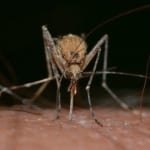Are Hidden Food Allergies Making You Miserable?
How to figure out if food allergies are causing inflammation—and making you hurt
Sure you should eat that?
When it comes to chronic pain and depression, there’s no reason why you “just have to put up with it.” We now know that these states—and a host of conditions that accompany them—are caused by the inflammation of microglia in the brain. The microglia (your brain’s immune cells) turn on inflammation, and when they reach a tipping point, they become hyper-reactive, after which the slightest assault can set them off, triggering system-wide inflammation that can be difficult to stop.
This means that we have more reason than ever to eat well, exercise, meditate and make sure our bodies have the nutrients they need—avoiding the foods that are the likely culprits for allergies and sensitivities.
Here’s how to figure out if your diet is what’s causing your inflammation:
Try a low-inflammation diet
For 6 weeks eat only brown rice, fish, chicken, eggs, fresh fruits, and vegetables. This diet eliminates most of the foods people are allergic or sensitive to, such as wheat, soy, and milk products. Organic, grass-fed beef can be included in the diet as well.
Start an “eating and aftereffects” diary
When you’re trying a low-inflammation diet, it’s important to keep a food diary. In addition to writing down what you eat and when you eat it, you will also check back in with yourself throughout the day to see how the food made you feel. Allergies and food sensitivities may not show up for hours after you eat the offending food or spice, but if you are alert, you’ll increase the odds of making connections between the food and your response. Be sure to write down exactly how you feel at the beginning of the diet, so you can make an accurate comparison in 6 weeks.
Avoid stimulants
This means no caffeinated coffee, tea, or alcohol. It also means no NSAIDS to inflame your gut. If you typically drink more than 2 cups of coffee a day, it might be best to cut your consumption in half every few days until you are coffee-free. If you normally drink 6 cups, cut it down to 3 cups for a few days, then 1.5 cups for a few days. After a week or two easing off caffeine, you should be able to go without coffee and not get a headache.
Questions? Give Us a Call!
Evaluate your process
Rate the following factors in your diary: Energy Level, Ability to Focus and Concentrate, General Pain Level, and Specific Pain Level. Complete the diary at the same time every day. Feel free to add comments about your sleep, digestion, and any other aspect of your health or mood. Make note of any unusual life events.
Add back foods
After 6 weeks, gradually add back new categories of food, one at a time, one week at a time. A good food to start with is dairy. Pay close attention to whether bringing dairy back causes gas, bloating, or other reactions. The next week, add soy products, such as tofu, soybeans, miso, and soy sauce. The following week, add wheat, such as bread, cereal, pasta, and canned or frozen foods with wheat fillers.
You will be the best judge of whether or not these foods have a negative effect on your energy level, your mood, or your ability to concentrate.
Signs of allergies
If you lose as much as 5 pounds or more the first week, it may be a sign that you’ve been eating foods you’re allergic to and your tissues have been swollen. Other signs of allergies include migraines, numbness in the arms or legs, inability to focus, poor concentration, fatigue, depression, brain fog, headaches, mood fluctuations, itchiness, sneezing, gas, diarrhea, sinus congestion, and skin rashes.
Delayed reactions are not uncommon. You may get a headache in the morning from something you ate the night before. This is why it’s important to add foods back into your diet very slowly.
Prepare for the toughest part
It’s likely that the first 2 weeks will be the hardest. Old habits can be tough to change. The next difficult part comes at the end, after the 6 weeks, when you are feeling better but starting to add in new foods. It can be frustrating to learn that you are having a negative reaction to one of your favorite foods. Maybe you add gluten in for a few days, but soon realize you’re experiencing bloating, congestion, and brain fog. Many people will ask: “Does this mean I can’t eat wheat anymore?!” The truth is: You can eat whatever you want. It depends on whether or not you’re willing to accept the consequences.
Published date: Apr 10, 2014 / This article was first seen on Prevention.com. Read more about the new connection between inflammation and chronic pain — and what scientists are doing about it — with Is Depression Ever Just Depression?
We are here for you, and we want to help.
Our goal is to return you to optimal health as soon as possible. To schedule an appointment please call: 703-532-4892 x2











Leave a Reply
Want to join the discussion?Feel free to contribute!